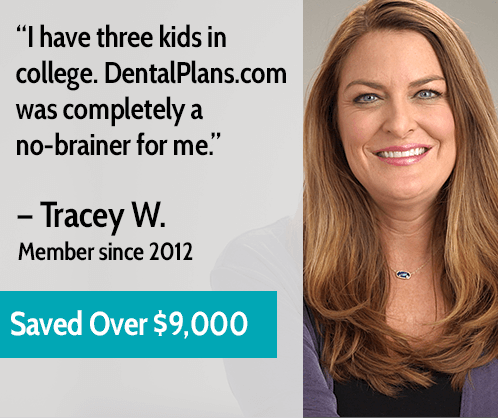“Healthcare is not a privilege, but a fundamental human right that provides peace of mind and protects both health and financial stability.”
Health insurance is an essential foundation for individuals and families, especially in cities like Homestead, Florida. It guarantees access to necessary healthcare services, which leads to better health outcomes, enhances financial security, and fosters peace of mind. With the rising costs of medical care, it becomes increasingly important for residents to understand the health insurance options available to them. Whether you are an individual, part of a family, a small business owner, self-employed professional, skilled worker, or independent contractor, having the right health coverage can mean the difference between thriving and merely surviving. Knowing where to look and what to consider will empower you to make informed decisions about your health insurance needs.
To navigate the complex landscape of health insurance in Homestead effectively, consider scheduling a market research consultation with a licensed health insurance expert. This can save you significant time and money while preventing costly mistakes in choosing the right health coverage for your unique needs. Take action today and fill out the form below:
Free Marketplace Research

Understanding Premiums and Deductibles
The Basics of Premiums
Premiums are the monthly fees you pay for your health insurance plan. In Homestead, the cost of premiums can vary widely based on factors such as age, location, and the level of coverage you select. Generally, lower-premium plans may come with higher out-of-pocket expenses, while higher-premium plans tend to have lower deductibles and better coverage. Understanding how premiums work can significantly influence your choice of health insurance and your financial planning strategy.
Diving into Deductibles
A deductible is the amount you must pay out-of-pocket before your insurance begins to cover costs. High-deductible plans often come with lower premiums, which may appeal to healthy individuals or families who expect minimal medical expenses. In contrast, those with chronic health conditions should consider lower-deductible options that offer better access to care sooner, despite higher monthly costs. Weighing these factors carefully can help you find a balance that suits your financial and health needs.

Out-of-Pocket Expenses Explained
Out-of-pocket expenses are additional costs incurred when using health care services not fully covered by your insurance plan. These include copayments, coinsurance, and services that fall under your deductible. Understanding these costs is crucial, as they can accumulate quickly, affecting your financial well-being. It’s essential to review how your chosen plan structures these additional expenses, helping to ensure that your overall healthcare costs remain manageable.
The Out-of-Pocket Maximum
The out-of-pocket maximum is the maximum amount you will pay for covered medical expenses within a policy year. After reaching this cap, your insurance will cover 100% of the remaining costs for covered services. This feature provides a safety net, particularly for those facing serious health issues that could lead to overwhelming medical bills. When choosing a plan, carefully consider the out-of-pocket maximum, as this can significantly impact your financial stability in times of need.
Get a hussle-free consultation
Pre-Existing Conditions: What You Need to Know
Pre-existing conditions are health issues that existed before obtaining a health insurance policy. Under the Affordable Care Act (ACA), insurers cannot deny coverage based on these conditions, which means you can gain access to necessary services even if you have ongoing medical needs. However, some private insurance options may have waiting periods or exclusions, making it essential to explore all available plans to secure comprehensive coverage.
The ACA marketplace offers a safety net for individuals with pre-existing conditions, ensuring they receive necessary coverage. On the other hand, private insurance plans may limit options for those with certain health issues. Weigh the benefits and drawbacks of each type of coverage carefully, considering your health status and your family’s needs to find the best fit for your situation.

Comparing ACA Marketplace and Private Insurance
The ACA marketplace provides standardized plans, making it easier for consumers to compare options side by side. Additionally, it offers subsidies for qualifying individuals and families, lowering premiums and out-of-pocket costs significantly. The marketplace also protects against discrimination based on health status, allowing for more equitable access to healthcare services.
While private insurance may offer more customized plans and a broader range of provider networks, it often comes with higher premiums and can deny coverage based on pre-existing conditions. This may render it less accessible for those needing comprehensive, affordable healthcare. Weighing these pros and cons is critical to making a decision in your best interest.

Provider Networks: Navigating Your Options
Provider networks refer to the group of doctors, hospitals, and other healthcare providers that participate in a health insurance plan. Plans with wider networks often offer employees and families greater flexibility in choosing providers. However, in-network visits typically cost significantly less than out-of-network ones. Be sure to examine the networks available in any health insurance plan you consider, ensuring they align with your preferred doctors and healthcare facilities.
Different insurance options feature various types of networks, including HMOs, PPOs, and EPOs. An HMO usually requires members to choose a primary care physician and obtain referrals for specialists, while PPOs provide more flexibility when picking providers but at a higher cost. Understanding these nuances will help you make informed decisions about your healthcare, ensuring you find a plan that balances costs with your healthcare preferences.
Choosing the right health insurance plan in Homestead, Florida, is vital for ensuring your peace of mind and financial stability. With the various factors to consider, from premiums and deductibles to provider networks, it helps to be informed about your options. If you need immediate assistance, call or text (407) 588-0505 today!
FAQs about Affordable Health Insurance in Homestead, Florida
1. What is the difference between the ACA marketplace and private insurance?
The ACA marketplace provides standardized plans that cannot deny coverage based on pre-existing conditions and offers subsidies for qualifying individuals. In contrast, private insurance can vary widely in coverage and costs and may impose waiting periods for pre-existing conditions.
2. How can I determine if I qualify for health insurance subsidies?
Qualification for subsidies is based on your income and household size. It is advisable to provide this information during the application process in the ACA marketplace to find out if you qualify.
3. Are there any limitations on coverage for pre-existing conditions?
Under the ACA, there are no limitations on coverage for pre-existing conditions. However, some private insurance plans may impose waiting periods or exclusions, making it crucial to research your options thoroughly.
4. How do I find the right plan for my family’s needs?
Consider your family’s health care needs, financial situation, and preferences regarding providers. Consulting a licensed health insurance expert can help navigate these choices effectively.
5. What should I do if I’m self-employed and need health insurance?
Self-employed individuals have multiple options, including the ACA marketplace and private plans. Reviewing your specific health needs and budgets can guide you to the right choice for coverage.







0 Comments